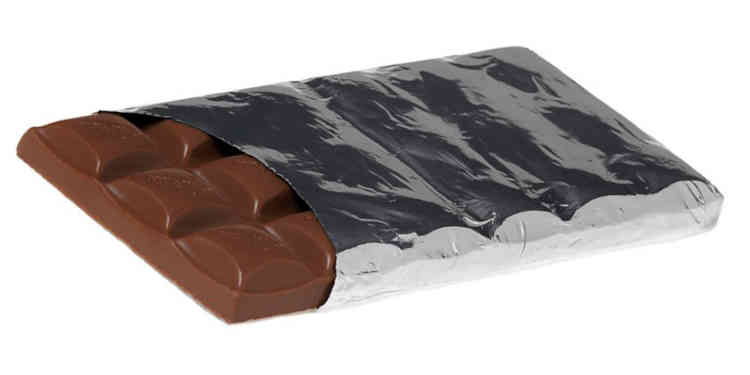There’s a lot of chocolate on sale this Christmas. Most people love a good chocolate.
But if you want your chocolate purchase to be good for those on the front end of the supply chain – poor and sometimes exploited workers on cacao plantations in West Africa – what is a good choice?
Fortunately, there are lots of good choices these days.
What’s the problem?
The chocolate industry is worth about $10bn worldwide annually. 70% of the world’s cocoa comes from cacao plantations in West Africa. There farmers earn such a low wage – sometimes as low as a dollar a day, half the extreme poverty level – that often their children are forced to work too, in unsafe near-slavery conditions, instead of getting an education.
If a small price increase here was passed on to the farmers, they could receive a fair wage.
There are also environmental issues, but the exploitation of families and children is the most intolerable aspect.
Justice for cacao farmers
These unacceptable facts have been known for a while, of course, but getting action has been harder.
Step 1: Certification
Concerns for the ethics of the chocolate industry have led to the setting up of three ethical certification schemes, Fair Trade, UTZ and Rainforest Alliance. (UTZ and Rainforest Alliance have since merged, but both certifications are still available.)

Many smaller, niche, and generally more expensive chocolate makers sought certification, but the big six global chocolate companies (Cadbury-Mondelez, Nestlé, Mars, Hershey, Ferrero Rocher and Lindt) were reluctant to commit to buying only certified cocoa as they felt there was insufficient supply. It is easy to be cynical about this.
Step 2. Industry schemes
Under pressure from advocacy groups and some consumers, the larger chocolate companies began their own plans that would (they said) pay workers a fair wage and guarantee environmental sustainability. Why they needed a plan rather than simply pay a fairer price is unclear to me.
In 2010 commitments were made across the industry and targets were set, to reduce the worst forms of child labour by 70% by 2020. However often action fell short of commitment, while demand for cocoa kept rising. As a result, surveys as recently as 2018 and 2020 showed that child labour was as exploitive as ever and poverty continued.
Most companies have renewed their commitments for sometime in the next few years.
Step 3. Consumer and industry action
There are signs that, at last, the industry is moving in the right direction. But encouragement would surely help.
You and I can encourage by careful purchasing and we could also write to the major companies supporting them paying a fairer price. (I have written to most of them in the past.)
Buying ethical chocolate
The most ethical chocolate makers are generally the small ones. Here are a few that you may like to check out:
- Alter Eco is a sustainable manufacturer selling in Australia and USA and rates most highly on all assessments.
- Haighs (UTZ certified) and Chocolatier are highly rated Australian chocolate makers.
- Divine is part owned by Ghanian growers, is Fairtrade and sells in USA and UK.
- Whittakers is a New Zealand chocolate that is available in supermarkets in Australia.
- Tony’s Chocolonely is a successful European company set up to be 100% slavery free.
- Slave Free Chocolate lists a whole bunch of ethical manufacturers selling in the US.
- The Good Shopping Guide lists a number of highly rated manufacturers selling in the UK.
The ethical performance of major companies (and a few smaller ones) has been assessed by a number of different organisations in several countries. I have put together a table of the different assessments and come up with some overall rankings (see The bitter truth about chocolate on my other blog).
These individual ratings can vary markedly, as they were carried out at different times and using varying criteria. But together they provide some guidance for our ethical purchases. Of the major companies, we can say:
- None of their supply chains is yet nearly as ethical as the smaller companies mentioned above.
- Aldi is slightly ahead of the others.
- Ferrero Rocher, Mars and Nestlé are next best.
- Cadbury-Mondelez, Lindt and Hershey appear to be a little behind the others.
Choices
Our choices are a factor in the living conditions of West African farming families. We wouldn’t be willing to employ slave labour directly, so how can we be willing to support near-slavery indirectly?
It may not always be possible to make the most ethical choice, but we can move in that direction, and so encourage the ethical makers and give an incentive to the big companies.
Look for a certification logo or choose a brand that has been rated as ethical.
Photo: Wikipedia.
This post taken from my other blog, Is there a God?





Thanks Eric, a practical action to be lights in this world 🙂
Hi unkleE,
I just read this post (agree with i t all) and wasn’t intending to comment, but I noticed the name and full email address of another subscriber in the input boxes where we post comments. A bit concerning for security reasons. Just letting you know. Feel free to delete this post if you want.
Just did the same on my PC (first was on an android tablet) and the same happened, same other subscriber.
Sorry
It only seems to happen on this post. If I go into “Callous Christians” my name and email is in the boxes.
Back to normal now. Must have been transient.
Thanks for that input. Something has gone wrong, probably has been wrong for a while now. WordPress is sometimes difficult because it isn’t one piece of software but a whole bunch of PHP files. Depending on what I am doing, different files load and are exectued, in order. I can add any number of “plugins” which are extra PHP files that have to be run, and of course there is potential for one plugin to interfere with another. I think that is what may have happened.
Two things have gone wrong: (1) WP advising me when a comment is posted and (2) readers subscribing and getting email notification of new posts. You have reported (2) to me, as has at least one other reader, while I have had problems with (1) – e.g. I wasn’t advised of your comments here. (It seems to only advise me of new commenters, don’t knoiw why. So everyday I have a list of things to check.)
I think (1) is a WP problem, while (2) is a plugin problem. I am working on replacing my subscribe plugin with another, but it isn’t proving easy, and it may be showing I have deeper problems. So I really appreciate your feedback. I don’t know how to understand this latest thing, but it must be a result of the new plugin I am trying. If you could email me the name of the subscriber, that might help thanks.